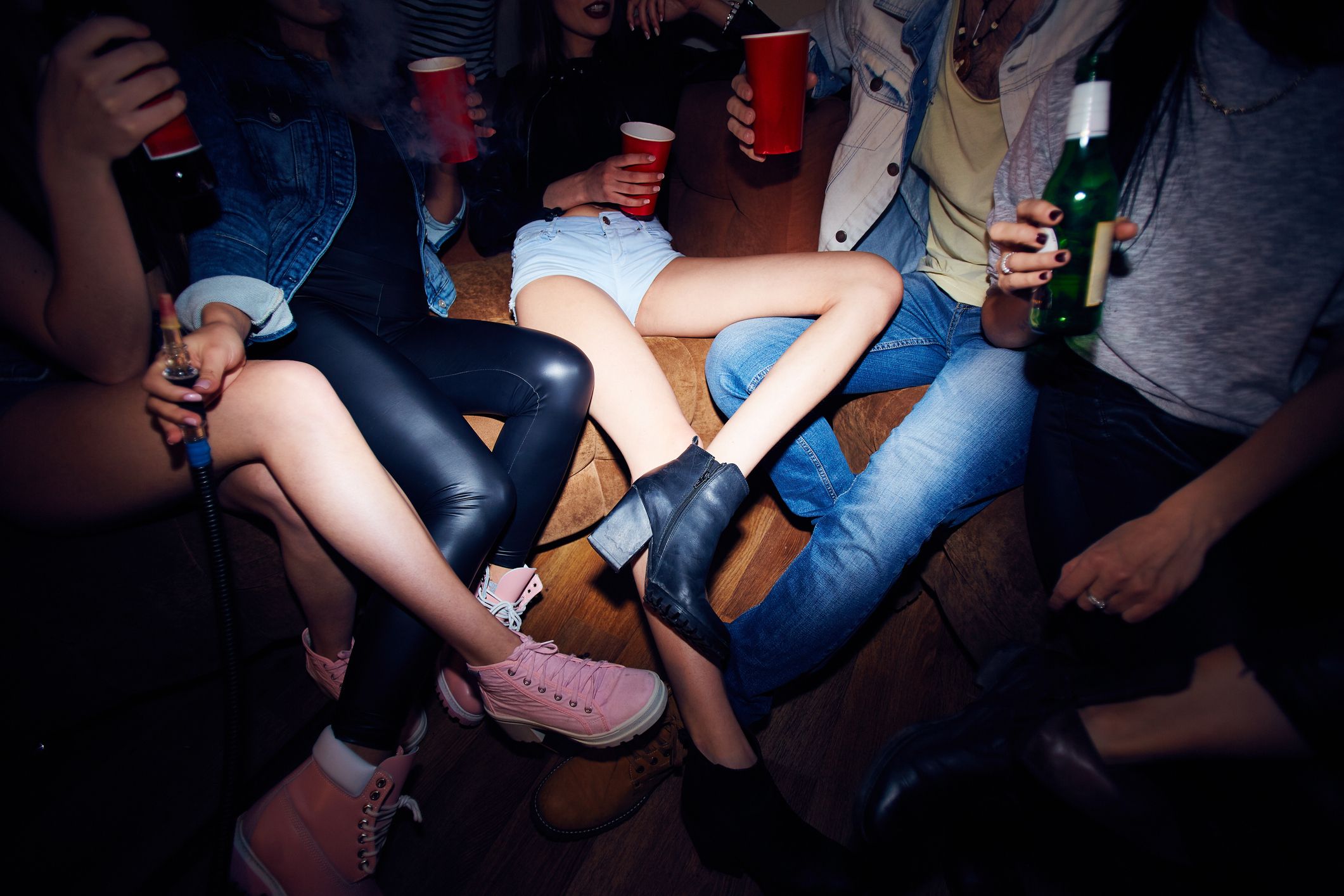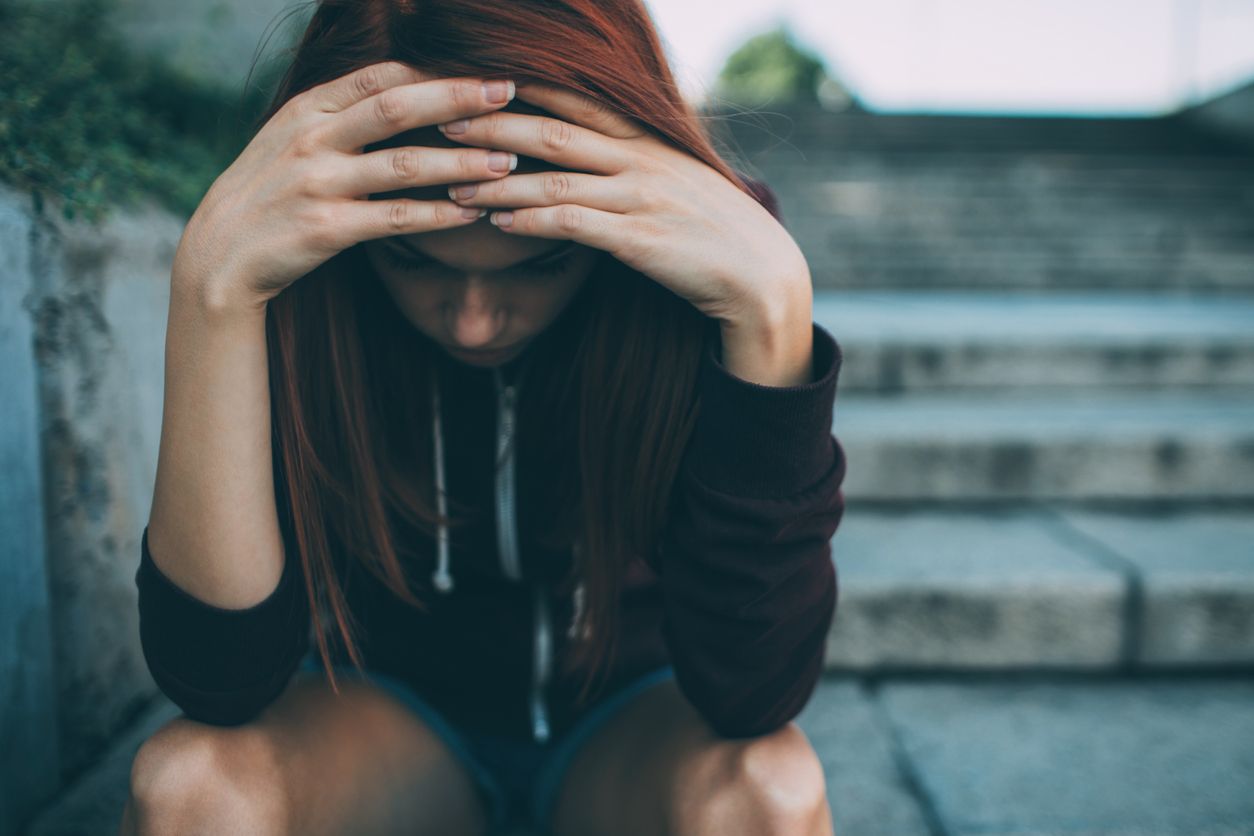Sober Kids Canada
For Youth
Alcohol – Questions and Answers


Why do people drink, and why does it feel good?
There are a lot of different reasons why people drink alcohol, but most people do it because it can feel good (at least initially). Adults, teenagers, pretty much anyone can use alcohol to (temporarily) ease anxiety and stress, and to (temporarily) feel better about themselves. The long and short of it is, alcohol artificially helps people feel better for a short period of time. We say “artificially” because the feel- good affect is not coming from inside of you, it’s coming from a chemical outside of you being put into your body. Alcohol goes into your blood, eventually reaches your brain where it slows down processes in your brain and central nervous system. It’s also artificial because it does not last very long, eventually it leaves the bloodstream/brain, and then more often than not can make a person feel worse than before they drank.
So, what’s so bad about that? Well, if someone has one drink, maybe there is nothing so bad about that. If your parents have a glass of wine with dinner, or a beer during the hockey game, maybe there is nothing wrong with that for most people. The problems begin when anyone (adult or teenager) adds several more drinks onto one, and/or if drinking starts to become a habit or part of a social routine. The greater the quantity of alcohol, the greater the risks to mental and physical health, and the greater social risks one becomes exposed to (violence, sexual risks, car accidents, etc.).
What are the risks/problems with teenagers drinking alcohol?
There are good reasons why alcohol is illegal for teens and permitted for adults (even though, admittedly, many adults act like morons when they drink). There has been lots of research to support the idea that alcohol can be really harmful for teens. Here are some of the well-known facts.
- Your brain is still developing – Alcohol messes that up – The human brain takes until about age 25 to fully develop. The foundation of who you will be as an adult is being built daily through chemical processes in your brain. You have to go through stress, trials, anxiety etc. and your brain develops patterns to process these emotions. Alcohol messes with that process in a bad way when someone drinks regularly as a teenager. In short, alcohol stunts emotional development in teenagers. So, if someone starts drinking regularly at age 13, and stops at age 20, they will basically be trying to walk through life as an adult with the emotional brain of a 13 year-old.
- Younger drinkers often turn into adults with addictions – 95% of people suffering from addiction as adults started using alcohol or drugs as teenagers. This has largely to do with the fact that, in that earlier stage of development, the teenage brain is a lot more vulnerable to the addictive effects of alcohol than an adult brain. This can mean if you start drinking or using drugs at a younger age, your brain sets itself up for a pattern of needing alcohol or drugs in order to cope with the daily stresses of life, and hand in hand with that, your brain/body can become dependent on alcohol or drugs.
- Alcohol lowers your guard and makes it more likely for you to be involved in high risk situations. For example,teens who drink alcohol are at much higher risk for having unprotected sex, more at risk of being victims of sexual assault and have a higher chance of being harmed by physical violence than their non-drinking peers.
- Risk of death – it’s no joke, car accidents are the leading cause of death for Canadians ages 15-25. For every car accident where a teen died in Canada, 55% involved alcohol or drugs. If you drink, or hang out with drinkers, the chances of you drinking and driving yourself or being a passenger in a vehicle where the driver is intoxicated is much higher 73.
- Teenage drinking often means poorer grades, less education/training and therefore less career/financial success as an adult. Research shows in both Canada and the U.S. that teens who binge drink are more likely to do poor in school, and as such, face a harder/uphill future as an adult due to worse education than their peers.
What if my parent or grandparent was an alcoholic? What does this mean for me?
If your mom, dad, or grandparent was an alcoholic, this means that you are 50% more likely to be addicted to alcohol than a friend whose family does not have this history. Keep in mind that the addiction itself would not likely be triggered unless you started drinking regularly. So a better way to say it is that, if your family has a history of addiction, and you choose to drink alcohol regularly, you are 50% more likely than other kids to eventually develop an addiction.
Addiction is a disease which is largely based on genes. Some people have genes/body chemistry that makes them more prone to getting addicted to substances. This is no different than some families being more prone to heart disease or other illnesses based on their body types and genes.
There is nothing wrong with you or anyone in your family because of these genes. Addiction is a common disease like many others which can be inherited in a family (cancer, diabetes etc.). But if you have these genes, it does mean you should be more aware of these risks before you decide to drink alcohol.
My friend/friends’ group has started drinking – What does that mean for me?
Most people become who they hang out with (this goes for both adults and kids). So, the first thing you have to ask yourself is this: “Do I want to be a drinker too?” If the answer is no, then you may face a tough choice of either getting new friends or choosing not to hang out with certain friends at times they are drinking. The more you hang out with people who drink, the more likely you do the same as those around you. Again, this is not a teenage phenomenon, adults often become who they hang out with as well.
Here, we want to note a distinction between trying to helping a friend vs. protecting yourself. If you feel a friend has an addiction or a problem with alcohol, it does not mean they are ‘bad’. Addiction is a disease. However, at the same time, you need to be cautious about socializing with friends who use alcohol regularly. Generally, the more a teenager hangs out with groups who drink alcohol, the greater the likelihood she will eventually use alcohol herself on a regular basis.
I don’t want my friends to drink – can I get them to stop?
You can tell a friend (or any adult) how you feel about their drinking, but you cannot make anyone stop drinking if they choose to do that. In other words, you can’t control your friend’s behaviour, you can only control yourself. Sure, you can let your friends know that you are worried about them drinking, but at the end of the day, they will make their own choices and there is not much you can do about another person’s choices, whether it’s a teenage friend or an adult. When it comes to alcohol, you have to look out for number one (you).
What can I do to help a friend who I think is drinking too much?
While you cannot stop a friend from choosing to drink, there are some things you can do to help. Here are some suggestions:
- You can talk to your friend, and tell them what you are seeing when they are drinking (this is what I am seeing, here is what I am worried about in your behaviour etc.).
- You can/should talk to your parents – Telling your parents you are worried about a friend who is drinking is not ‘ratting them out’. Instead, it means you care and you want to find a way to help your friend. Your parents can often be a good source of information on what to do if one of your friends is drinking in an unhealthy way.
- Talk to a school counsellor or another adult you trust – Most schools have counsellors you can speak with confidentially about issues like underage drinking. If you are really worried about a friend’s behaviour with drinking, you can/should talk to a school counsellor. It is OK to love a friend enough to try and help them, even if this means they risk getting into a bit of trouble at home.
- The Kids Help Phone BC (1-800-668-6868) provides free 24 hour a day counselling services to kids or teens who might be suffering from issues relating to alcohol, drug use or any other problem. This service can give you some helpful tips/advice on what you can do to help your friend, if anything. More information on this service can also be found at https://kidshelpphone.ca/.
Alcohol Poisoning- someone throwing up - passing out - what should you do?
If you do spend time with any group of friends who drink too much, it is important to understand how to spot alcohol poisoning. Alcohol poisoning usually results in someone drinking too much alcohol too quickly. If you see a group of people chugging beer, doing lots of shots, or playing drinking games, these are scenarios where you should be on the lookout for signs of alcohol poisoning. This occurs when someone drinks too much and, essentially, the amount of alcohol has a toxic effect on their brain. Without medical attention, a person can easily die from alcohol poisoning.
Signs of alcohol poisoning include vomiting (barfing), passing out unconscious, and can also include colder skin temperature and/or breathing that seems too slow. Alcohol poisoning can be present with only one or two of these signs. To make a long story short, if you are at a party, and a friend who has been drinking a lot is throwing up and/or passes out unconscious, these signs alone are enough of a concern to call “911” or have a sober driver take them to the emergency room. Calling the friends’ parents or another adult you trust in this situation can also be very important.
If you are drinking with the friend, it would be understandable that you would not want to get caught drinking yourself. Maybe you would be afraid to get help for your friend because of that risk. However, please remember that getting your friend help can be a choice between life and death for them.
If someone you know is throwing up from drinking, until help arrives, it will be important for you to try and be of assistance. Do not let the friend lie on their back if they have been throwing up. If someone passes out drinking and lies on their back this increases the chances of them choking on their vomit and dying while they are passed out. If a friend passes out or even is just sleepy/awake after throwing up, try and keep your friend on his side until help arrives or until you can get him to a hospital.
I think I have a problem with drinking, how can I get help?
If you think you might have a problem with alcohol, there are lots of great resources you can contact in BC in or near your hometown. For more information you can visit our get help page and select the town closest to you. Most of these places will likely talk to you confidentially, and if they cannot help you, they can likely direct you somewhere that can help.
There is also 24 hour- telephone help available for anyone in BC who thinks they might be suffering from addiction or problematic drinking. This is provided through the BC Alcohol and Drug Information and Referral Service which can be found at the following link: https://www.healthlinkbc.ca/health-topics/alcohol-and-drug-use-young-people
The Kids Help Phone BC (1-800-668-6868) provides free 24 hour a day counselling services to kids or teens who might be suffering from issues relating to alcohol, drug use or any other problem. More information on this service can also be found at https://kidshelpphone.ca/.
Of course, last, but certainly not least, you can talk to your parents/guardian. Depending on the kind of relationship you have with your parents, they can be a great source of support for whatever issue you may be going through. Similarly, if there is a teacher or counsellor at school, or another responsible adult you think you can trust, these are also people you can/should speak to if you feel you are having any kinds of issues with alcohol.
People around me are drinking – How can I say no?
When it comes to alcohol or drugs, you are the boss. You can say no to alcohol. If you want to say “No”, here are some ways you can stand up for yourself and say “no”:
- “No thanks” – If you are offered a drink by a friend, you can say “no thanks”.
- If someone persists after you say no –give them a reason for your “no”. There are lots of good reasons you can provide:
- My parents will kill me if I do that.
- There is addiction in my family, I am not rolling the dice and trying that stuff.
- I have something important coming up/I play a sport, my parents will not let me go/ground me if they smell alcohol on me.
- Shift gears/change the subject – If someone is offering you a drink, you can change the subject or shift gears: “No thanks, hey, what are we doing later?…No thanks, hey, instead of doing this why don’t we go to the skate park”.
- Walk Away – Leave the situation – The best way to avoid the pressure of drinking alcohol is to leave the situation where the pressure is happening. This is not always possible, but it can be a great option. For example, you are at a house party that starts getting out of control and people are drinking, leave and go home (or somewhere else).
- Avoid having to say No altogether – Hang out with people who do not drink- The best way to avoid the pressure of having to say “No” is to surround yourself with/choose to hang out with friends who do not value drinking alcohol. The old saying ‘like attracts Like’ comes into play here….if you hang out with people who do not drink, it is more likely you will not drink, and it is more likely you won’t be pressured to drink.
- Remember, you are not required to give a reason for not drinking. If someone will not accept your “No”, that is their problem, not yours. You can choose to exit the situation or place (if possible), and eventually, if that keeps up, you can exit the friendship. You get to pick your friends and who you want to spend time with/what you want to do in your spare time.
Someone in my family is drinking too much – What can I do?
If you are worried someone in your family is drinking too much, there are other adults you can speak to about this. Just remember, you cannot make anyone else stop drinking. Adults choose to drink on many occasions, and if they have an addiction to alcohol, the adult may have lost the power to choose how much and how often they drink. Addiction is a disease that you (or anyone) cannot force another to be cured of. So if your mom, dad or sibling is drinking too much, remember: a) it is not your fault, and b) you can try and help, but you cannot make anyone change and you cannot fix someone by yourself. It is always up to an individual person to find a way to change, it is not up to you to make someone else act different. If your family member does have an addiction, she likely will need professional help to stop.
Here are some suggestions of resources/people you can speak with if you believe a family member is drinking alcohol in an unhealthy way:
- A counsellor, teacher or another adult you trust in your school or life.
- The Kids Help Phone (1-800-668-6868) provides free 24 hour a day counselling services to kids or teens – these resources include counsellors who can talk to you about how to cope with another family member who is drinking alcohol in an unhealthy way.
- Ala-Non/Ala-Teen are international organizations that support teens who have a family member struggling with substance abuse. More information, contact information and meetings for this organization in BC can be found at the following link: https://www.bcyukon-al-anon.org/is-alateen-for-you/.
Join our mission. Volunteer, Donate, Advocate. Get Started Today.
Email: info@soberkids.ca
Phone: 403-450-0029


